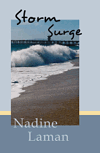Forty-two seconds after midnight Pacific Time yesterday an email arrived with the details for the famed Google Book Settlement.
From the very beginning of this mess (several years ago) I've thought this was handled poorly, but that is the American way: Go piss off a bunch of people while mindlessly looking to make a buck, act like you are doing some noble thing when someone grumbles, and trust that most people won't notice, care, or bother to think about what is happening.
While it is so easy to blame all of this on Google, that is just nuts. There were libraries at fault too who gave Google permission and access to scan books when they did not have the rights to do so (and they probably should have been joined in the suit). There were publishers who did the same (I had a fierce argument with my publisher at the time).
When the situation went into litigation, there were writer groups who took it upon themselves to speak for all writers in one of the lamest negations I've ever read. In my opinion they only had the right (duty?) to speak for their members when they filed their amicus brief, then patted themselves on the back as they spoke for writers everywhere - not only American writers.
And you want to know what really ticks me off? Most writers still don't have a clue what I'm talking about, what the issues of the case were, and won't read the settlement to know how it will effect them in the future.
Except for the pirating problem worldwide, and sorry to say, primarily in Asia; the fact that some lame brain in corporate America didn't have the basic understanding of the book industry to consider who the copyright holders of these works were/are; and the theft of moneys to be made from these books by persons I will leave nameless, I have no problem with books being scanned.
But most of us have slept through this whole debate like village idiots. That is why I'm not summarizing this incident. Some things are worth learning for oneself.
My admiration goes to the President of France for saying, "NO!" Other governments raised their sleepy heads long enough to respond in a watered down fashion.
On the high road, scanning books can bring them to people who are so remotely located that they otherwise have no access to them for the purposes of furthering their education (online).
http://www.googlebooksettlement.com/
And the "OOPS! We forgot this bit" link: http://www.googlebooksettlement.com/Supplemental-Notice.pdf
(Hey, I warned everyone in my beginning post that I probably shouldn't blog because I have an opinion on everything. This is one of the examples of my ability to think for myself and state it. http://nadinelaman.blogspot.com/2009/04/ive-been-member-of-blogger-since-2007.html)
Tuesday, December 15, 2009
Subscribe to:
Post Comments (Atom)

 When Paul Fenton stops for breakfast in a small town, he gets more than he bargained for in the process.
When Paul Fenton stops for breakfast in a small town, he gets more than he bargained for in the process.
 When two-hundred-year-old human remains are discovered on one of Neptune's moons, Earth's history falls into question.
When two-hundred-year-old human remains are discovered on one of Neptune's moons, Earth's history falls into question.
 Emily's husband persuades her to try thalidomide to ease her symptoms as she is unaware of the devastating effects.
Emily's husband persuades her to try thalidomide to ease her symptoms as she is unaware of the devastating effects.
 Who is the women's shelter bomber? Melissa Ryan suspects that her husband knows.
Who is the women's shelter bomber? Melissa Ryan suspects that her husband knows.
 Further developments with the Wilder family.
Further developments with the Wilder family.
 A hidden past shakes the O'Donovan family to its core
A hidden past shakes the O'Donovan family to its core
 A swirl of emotion and choice, set in Cape Town, South Africa
A swirl of emotion and choice, set in Cape Town, South Africa
 Love is a constant, but it comes at a price.
Love is a constant, but it comes at a price.
 When the road ahead is unclear, sometimes you have to rely on trust.
When the road ahead is unclear, sometimes you have to rely on trust.
 The struggle between good and evil is ages old. It gets all the more complicated when the good guys aren't all good and the bad guys have redeeming qualities.
The struggle between good and evil is ages old. It gets all the more complicated when the good guys aren't all good and the bad guys have redeeming qualities.
 Story of a land mothering two races of people – the light-skinned and the dark-skinned.
Story of a land mothering two races of people – the light-skinned and the dark-skinned.
 A gifted Ukrainian ballerina comes into possession of a mysteriously coded address book.
A gifted Ukrainian ballerina comes into possession of a mysteriously coded address book.
 Six passengers' lives change for better or worse after they arrive in Honiton.
Six passengers' lives change for better or worse after they arrive in Honiton.
 Resilience and love in a harsh and unforgiving age
Resilience and love in a harsh and unforgiving age
 Kathryn's Beach
Kathryn's Beach High Tide
High Tide Storm Surge
Storm Surge
The French Court ruling on this: http://news.cnet.com/8301-1023_3-10418319-93.html
ReplyDelete